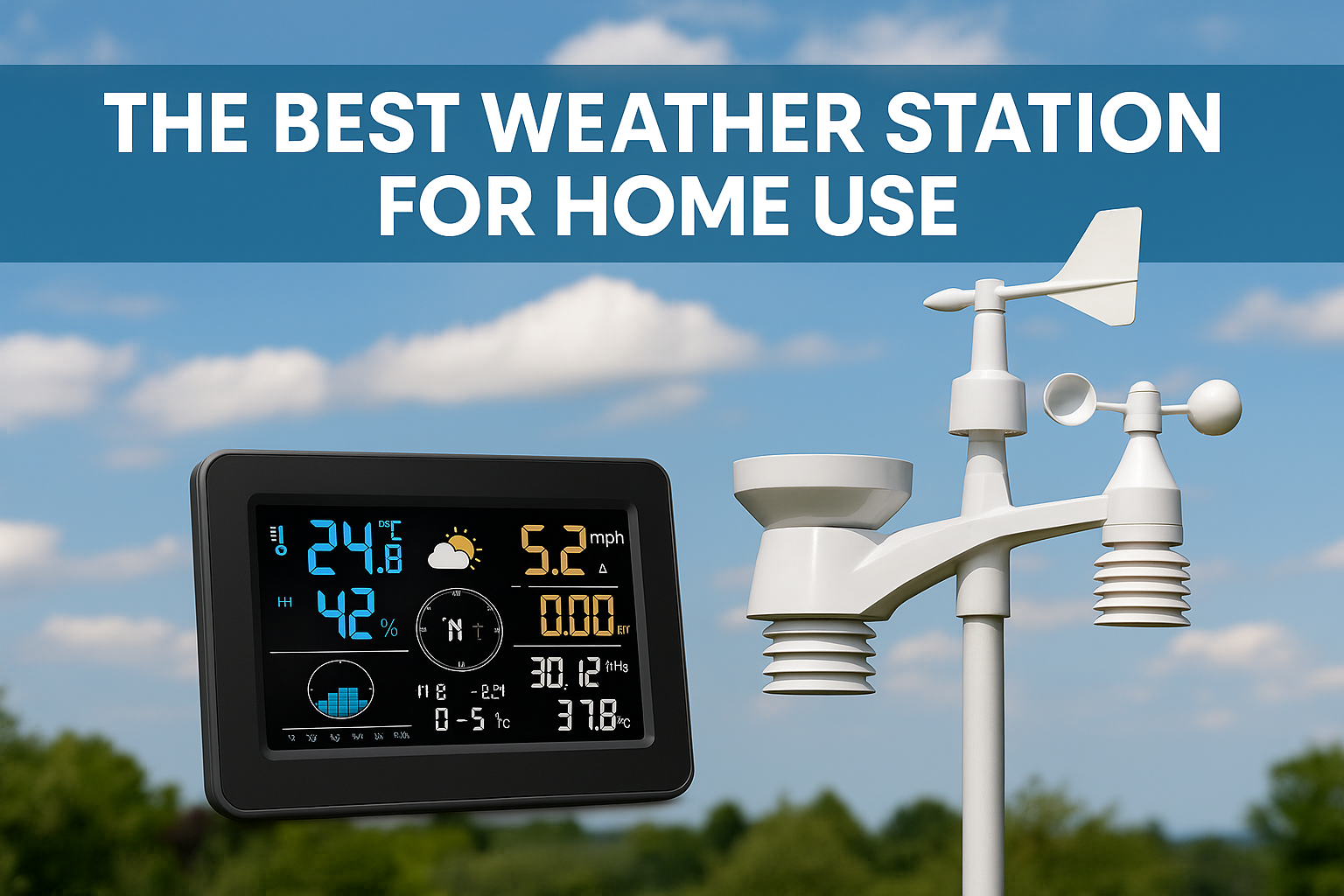Sponsor Any Post or Page on the Site. Just Contact Me to Discuss.
What is the best weather station for home use?
The best weather station for home use depends on your specific needs and preferences. Here are some factors to consider when choosing a weather station:
- Accuracy: Ensure that the station provides accurate readings of temperature, humidity, wind speed, and other key weather parameters.
- Display: Look for a weather station with a clear and easy-to-read display, such as an LCD screen or a mobile app, to view real-time weather data.
- Features: Some weather stations offer additional features such as barometric pressure, UV index, and rainfall measurement. Determine which features are important to you and look for a station that provides them.
- Durability: Consider a weather station that is designed for outdoor use and can withstand harsh weather conditions.
- Price: Weather stations are available at different price points, ranging from basic models to more advanced models with additional features. Choose a station that fits your budget and meets your needs.
Durability
Because your home weather station is intended to measure all sorts of weather conditions, you’ll need to buy a weather station and sensors that can stand up to even the most inclement weather. Look for weather stations that have rugged features, like a casing for protection from erosion or moisture. Also check on the warranty, as some companies will reimburse you if the weather station doesn’t live up to its promises. Weather stations should be weather proof!
Transmission distance
The setup of your home weather station can be crucial to its accuracy. Most importantly, it needs to sit within a certain distance of the main weather station control base unit. Standard wireless weather station sensors usually work within about 330 feet, but more premium models have a wireless transmission distance of up to 1,000 feet away. Make sure that the transmission distance is suitable for the location you are operating your weather station in.
Connectivity
In a standard home weather station setup, your outdoor weather sensors will connect to an indoor base station that displays the observed weather measurements. Some more advanced setups will also connect your home weather station to your computer or mobile device, so you can view your weather stats remotely on your phone for example. You can also have several view consoles to view the weather no matter which room you’re in. Certain home weather station models like NetAtmo are even integrated with Amazon Alexa, so you can ask her for your local weather station data without leaving your armchair. Awesome stuff!
The Strongest candidates
Based on these criteria, some popular weather stations for home use include the Davis Instruments 6250 Vantage Vue, the AcuRite 02032M Pro Weather Station, and the Ambient Weather WS-2902A Smart Weather Station.

